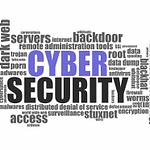In today’s digital age, web safety is of utmost importance as the internet has revolutionized communication, work, and access to information. However, it has also given rise to various online threats, making it crucial to ensure the safety of websites we visit.
Malicious actors employ tactics like phishing and malware distribution, highlighting the need for vigilance. This article explores essential considerations such as assessing the website’s URL, evaluating design, understanding privacy policies, ensuring updated browsers and security software, and adopting proactive web safety practices.
Assessing the Website’s URL
When evaluating website safety, consider the presence of HTTPS protocol, which encrypts data between the user’s browser and the server, making it harder for attackers to manipulate information. Always check for “https://” in the URL before entering sensitive data.
Examine the URL structure for suspicious elements. Malicious websites often use deceptive URLs to trick users. Watch for misspellings, extra subdomains, or additional characters. For example, “yourbank-login.com” instead of “yourbank.com” should raise suspicion.
Recognize established domain names for safer browsing. Well-known websites with reputable domains are generally safer than obscure or newly created ones. Be cautious with similar-looking domain names that differ slightly from popular brands. Fraudulent websites capitalize on brand trust to deceive users.
The Role of Website Design in Ensuring Safety
A website’s design can offer valuable insights into its safety. Professional and well-maintained websites tend to prioritize security and provide a better user experience. Look for consistent branding, clear navigation menus, and professionally designed layouts. Websites with amateurish designs, broken links, or excessive pop-up ads may indicate a lack of security measures.
Legitimate websites usually provide clear contact information, including a physical address, phone number, and email. Before engaging with a website, verify the availability of contact details and consider reaching out to the provided channels to ensure they are functional. The absence of contact information or the presence of vague or non-functional details could be a red flag.
Regularly updated content is a positive indicator of a trustworthy website. Websites that consistently publish fresh and relevant content demonstrate their commitment to providing accurate and up-to-date information. Conversely, websites with outdated content, especially those promoting scams or discredited information, should be approached with caution.
Safety Measures in Online Gambling Websites
When it comes to online gambling websites , it is crucial to prioritize safety due to the financial risks involved. Choosing regulated and the best online casino websites can significantly enhance your safety. Regulatory bodies impose strict standards on these platforms, ensuring fair gameplay, secure transactions, and protection of customer data.
Look for licenses or certifications from reputable regulatory authorities when considering an online gambling website.
Random Number Generators (RNGs) ensure fairness and randomness in online gambling. Check for RNG certification from independent auditors, guaranteeing that games are not manipulated for a level playing field.
Responsible gambling measures are indicative of a safe and reputable online gambling website. Look for features such as self-exclusion options, deposit limits, and time limits that allow users to control their gambling activities. These measures demonstrate a website’s commitment to promoting responsible gambling practices and protecting users from potential harm.
User reviews and ratings play a significant role in assessing the safety and reliability of online gambling websites. Take the time to read reviews, for example view this list in particular, which presents the best online gambling platforms. Try searching for testimonials from other users as well to gauge their experiences.
Pay attention to any complaints or warnings about payment issues, unfair practices, or security breaches. Positive reviews and high ratings can provide confidence in the website’s safety.
Safe online gambling websites prioritize secure payment methods to protect users’ financial information. Look for reputable payment options like credit cards, e-wallets, or cryptocurrencies. Secure payment gateways encrypt transactions, reducing the risk of unauthorized access or data breaches.
Understanding Privacy Policies and Terms & Conditions
Privacy policies outline how websites collect, use, and protect users’ personal information. It is crucial to read and understand these policies before sharing any sensitive data. Look for transparency regarding data handling practices, secure storage measures, and whether the website shares information with third parties. Avoid websites with vague or overly intrusive privacy policies.
Terms and conditions establish the contractual agreement between the website and its users. It is vital to read and comprehend these terms before engaging with the website’s services. Pay attention to clauses related to user rights, dispute resolution, and limitations of liability. Be cautious of websites with unfair or unreasonable terms and conditions that may jeopardize your rights or security.
While reading privacy policies and terms & conditions, be vigilant for red flags that may indicate an unsafe website. Watch out for excessive data collection, vague language, or clauses that grant the website excessive rights over user data. Websites that require intrusive permissions or ownership of user-generated content should also raise concerns. If any legal documents appear suspicious or unreasonable, consider exploring alternative websites.
Importance of Updated Browsers and Security Software
Keeping your web browser up to date is crucial for web safety. Browsers regularly release security patches and updates to address vulnerabilities that could be exploited by malicious actors. Enable automatic updates or regularly check for the latest browser version to ensure you have the most secure browsing experience.
Antivirus software plays a vital role in protecting against malware and other online threats. Install reputable antivirus software on your devices and keep it updated to detect and prevent potential security breaches. Regularly scan your system for malware and follow the software’s recommendations to enhance your web safety.
In addition to browsers and antivirus software, it is essential to keep all other software on your devices updated. Operating system updates, as well as updates for plugins, extensions, and applications, often include security patches that address vulnerabilities. Regularly check for and install updates to minimize the risk of exploitation by cybercriminals.
To Sum it Up
In conclusion, the safety of a website is a critical consideration in today’s digital landscape. By assessing factors such as the website’s URL, design, privacy policies, and security software, users can make informed decisions and protect themselves from online threats.
Remember, web safety is a shared responsibility, and adopting proactive practices is essential for a secure online experience. Stay vigilant, informed, and prioritize your web safety at all times.












